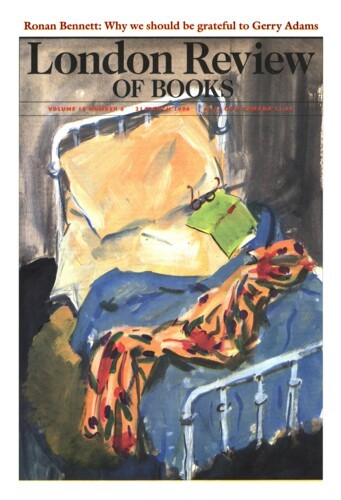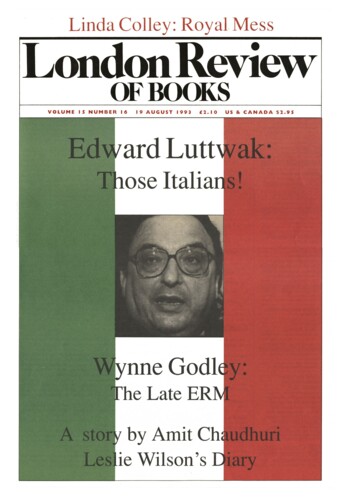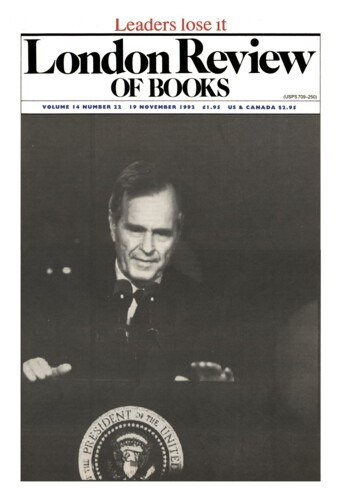Good Things
Colin McGinn, 5 September 1996
Suppose I perform an action certified by morality as good – say, giving money to charity. I then do something good because it is good. We might say that this action had the moral property goodness and that in acknowledging this to be so I had a reason to perform it. Anyone else has an equal reason to perform the same action, which is good no matter who performs it. Thus, generalising: morality is aptly seen as a set of principles that ascribe values to states of affairs and thereby provide reasons for bringing those states of affairs about. Morality says what we ought to do and in so far as we grasp its dictates we have the reasons it specifies: we know what we ought to do, and that we ought to do it is a reason for doing it.





